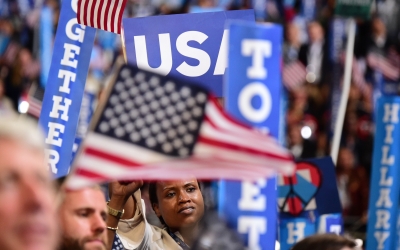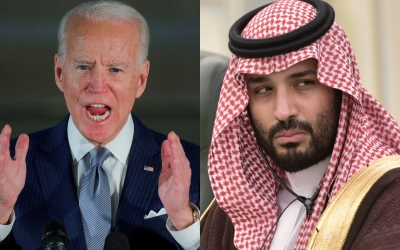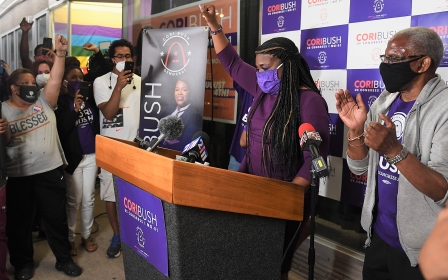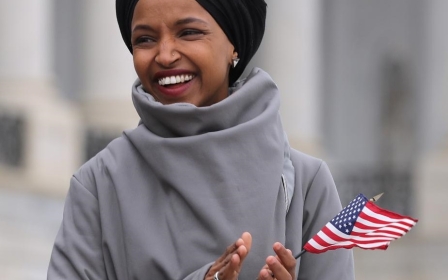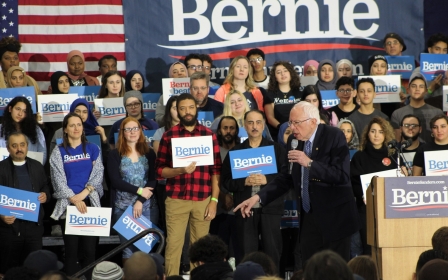Kamala Harris: Where does Biden's running mate stand on Middle East issues?
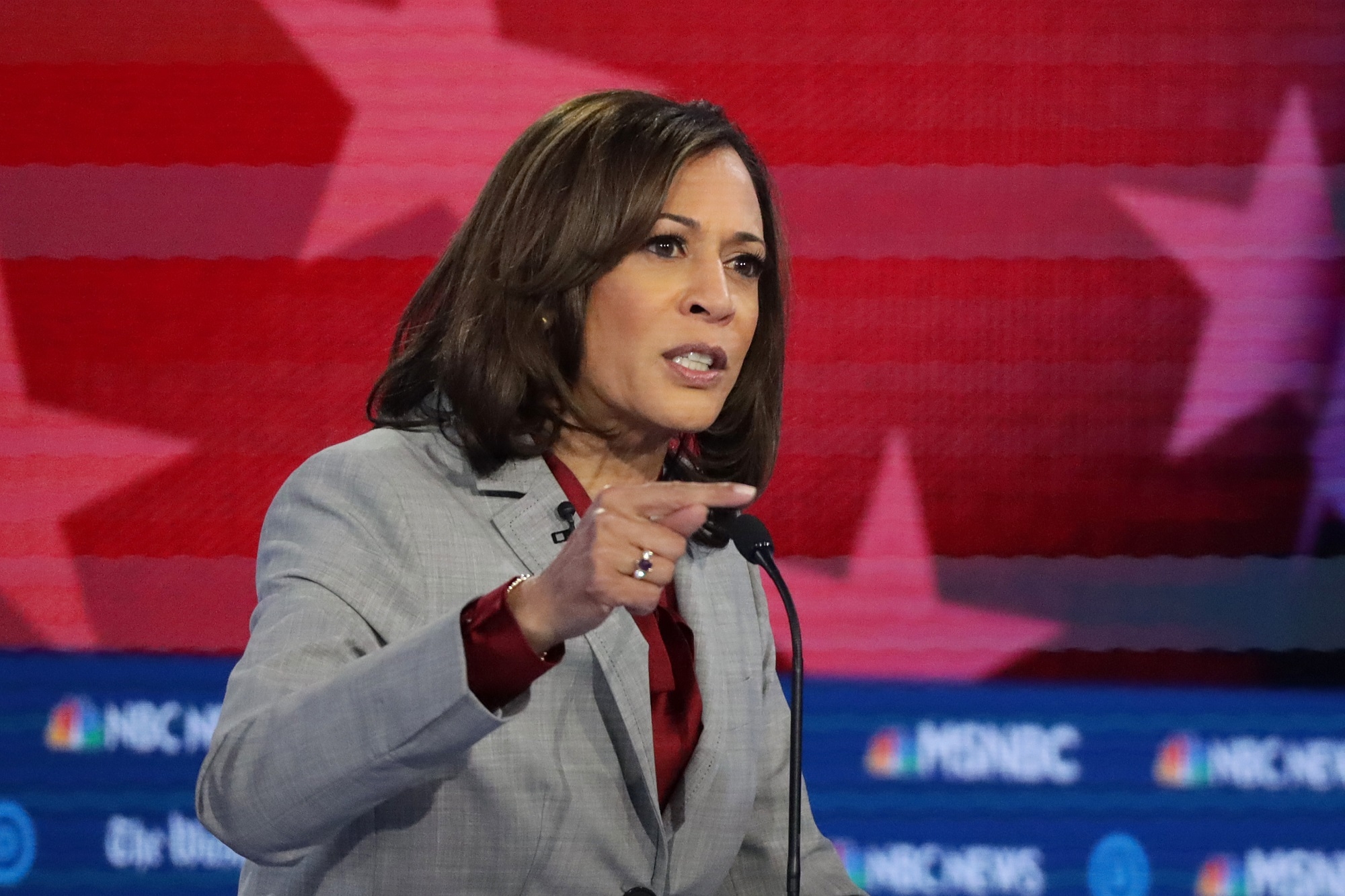
The American constitution does not grant the vice president much power. Other than the ability to cast a tie-breaking vote in the Senate, the VP's main responsibility is to assume the presidency in case of a sudden vacancy in the Oval Office.
But being so close to the centre of action, vice presidents can forge substantial roles for themselves. Mike Pence leads the Trump administration's coronavirus taskforce. Joe Biden oversaw Barack Obama's plan to withdraw thousands of American troops from Iraq. And Dick Cheney all but ran George W Bush's White House.
At 77, Biden would become the oldest American president on his inauguration day if elected in November. So his vice president, Kamala Harris, would likely play an active role in the government.
Moreover, serving as vice president would put her in an advantageous position to seek the presidency herself in the future.
The Biden administration is expected to reverse some of Donald Trump's moves in the Middle East and some foreign policy responsibilities may fall on Harris as vice president.
Who is Kamala Harris?
The daughter of immigrants from Jamaica and India, Harris was born in Oakland, California. After graduating law school, she started her legal career as a local prosecutor in Alameda County. In 2003, she successfully ran to become San Francisco's district attorney.
Seven years later, she was elected as California's attorney general becoming the first Black woman to serve in that position.
Harris, 55, burst to the national scene in 2016 after being elected to the Senate, emerging as an outspoken adversary of President Donald Trump.
In 2019, she announced a presidential run that ended before the first votes were cast in the Iowa primaries as she struggled to amass support in a crowded field of candidates.
In March, she endorsed Biden's presidential campaign as most Democrats rallied behind the former vice president against left-wing Senator Bernie Sanders who had won the first three primary contests.
Harris brands herself as a progressive, but she has garnered some criticism from the left over her record as a prosecutor and staunch support for Israel. Here's where she stands on Middle East issues.
On Israel-Palestine: Staunch supporter of Israel
Harris has been a staunch supporter of Israel. Months after being sworn into the Senate in 2017, she delivered a speech at the American Israel Public Affairs Committee (AIPAC) describing the bond between Israel and the US as "unbreakable".
"Israel should never be a partisan issue. And as long as I'm a United States senator, I will do everything in my power to ensure broad and bipartisan support for Israel's security and right to self-defence," she said.
One of her first legislative actions as a senator was to co-sponsor a bill objecting to a UN Security Council resolution that condemned Israeli settlements in the West Bank and East Jerusalem.
The Obama-Biden administration had allowed that resolution to pass, opting against vetoing it, months earlier.
Asked by the New York Times last year whether she thinks Israel meets international human rights standards, Harris said: "Overall, yes."
Early in 2019, she was one of 23 Democrats to vote against a bill that encouraged states to restrict the right to boycott Israel.
Like most Democrats, she has voiced opposition to Israeli government plans to annex parts of the West Bank, framing the move as a "unilateral" action that harms Israel.
"My support for Israel's security and the ten-year $38 billion Memorandum of Understanding (MOU) is unwavering," she wrote in a letter to Trump in June.
"In light of this support, I am deeply concerned by the warnings of some of Israel's most prominent former defense and intelligence leaders regarding annexation, which they believe could result in serious conflict, the further breakdown of security cooperation with Palestinian security forces, and the disruption of peaceful relations between Israel and her neighbors, Jordan and Egypt."
On Saudi Arabia: Riyadh 'must be held accountable'
Since Trump fully embraced Saudi royals after entering the White House, most Democrats have grown critical of Washington's ties with Riyadh. Harris is no exception.
After the murder of Jamal Khashoggi at the hands of Saudi government agents in 2018, she joined her Democratic colleagues in denouncing Riyadh and demanding answers from the Trump administration.
"The murder of Jamal Khashoggi was a tragedy and represented an attack on journalists everywhere," Harris said last year after co-sponsoring legislation demanding a report on the intelligence community's findings on the murder.
In 2019, she also voted in favour of resolutions to end US support for the Saudi-led war in Yemen and block arms sales to the kingdom. Both measures passed in Congress but were vetoed by Trump.
"What's happening in Yemen is devastating. Last year, the war killed on average 100 civilians a week, and thousands of children have died of starvation - Congress must take a stand," she said at the time.
While running for president, Harris told the Council on Foreign Relations that Washington should end its involvement in the Yemen conflict.
"The United States and Saudi Arabia still have mutual areas of interest, such as counterterrorism, where the Saudis have been strong partners. And we should continue to coordinate on that front," she said.
"But we need to fundamentally reevaluate our relationship with Saudi Arabia, using our leverage to stand up for American values and interests."
On Iran: Supports nuclear deal
Harris rebuked Trump in 2018 for withdrawing from the multilateral nuclear deal with Iran, which saw Tehran scale back its economic programme in exchange for the lifting of sanctions against its economy.
"Today's decision to violate the Iran nuclear deal jeopardizes our national security and isolates us from our closest allies," she said in a statement after Trump withdrew from the accord.
Early in 2020, after a US strike killed top Iranian general Qassem Soleimani, Harris co-sponsored legislation aiming to prevent funds to the Pentagon from being used in military action against Iran in an effort to avert war with the Islamic Republic.
"Make no mistake: Soleimani was an enemy of the United States, but Trump’s actions have further enflamed tensions and destabilized the region," she said at the time.
"It is essential that Congress take its constitutional responsibility seriously and work to de-escalate the situation."
Middle East Eye propose une couverture et une analyse indépendantes et incomparables du Moyen-Orient, de l’Afrique du Nord et d’autres régions du monde. Pour en savoir plus sur la reprise de ce contenu et les frais qui s’appliquent, veuillez remplir ce formulaire [en anglais]. Pour en savoir plus sur MEE, cliquez ici [en anglais].


